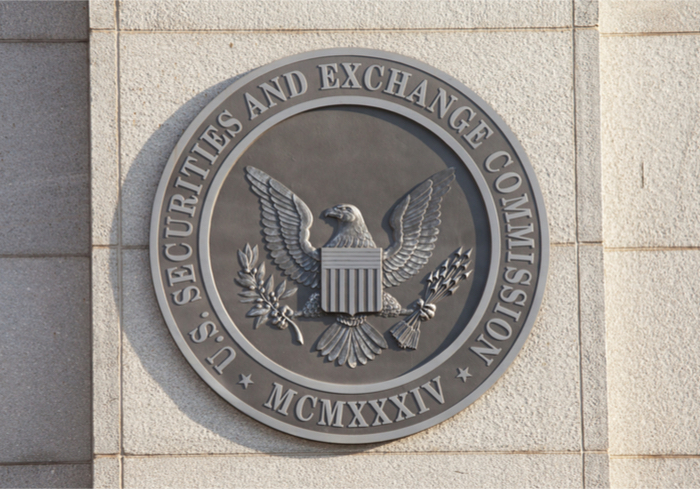The United States Securities and Exchange Commission (SEC) issued a restriction order to stop an ongoing initial coin offering (ICO). The ICO in question managed to raise approximately 21 million US dollars, in the United States of America and abroad.
The information was published on the SEC’s official website yesterday. According to the commission, the company behind the ICO is called Titanium Blockchain Infrastructure Services Inc and the commission has its assets frozen at the moment for violating the antifraud and registration provisions of the federal securities laws. Moreover, the SEC appointed a permanent receiver over the company: “The Securities and Exchange Commission today announced it has obtained a court order halting an ongoing fraud involving an initial coin offering (ICO) that raised as much as $21 million from investors in and outside the U.S. The court also approved an emergency asset freeze and the appointment of a receiver for Titanium Blockchain Infrastructure Services Inc., the firm behind the alleged scheme.”
The aforementioned steps were taken after the United States District Court for the Central District of California approved the lawsuit filed by the SEC on May 22nd this year.
The lawsuit accuses the company and its founder and CEO, Michael Alan Stollery aka Michael Stollaire, of presenting false information to the investors about alleged commercial relations with the Federal Reserve and numerous well-known companies, such as Walt Disney, PayPal, McDonald’s, Verizon, Boeing, etc. The lawsuit also goes against Stollery’s second company called EHI Internetwork and Systems Management Inc. This is what the SEC says about the lawsuit: “An SEC complaint unsealed today charges that Titanium President Michael Alan Stollery, a/k/a Michael Stollaire, a self-described “blockchain evangelist,” lied about business relationships with the Federal Reserve and dozens of well-known firms, including PayPal, Verizon, Boeing, and The Walt Disney Company. The complaint alleges that Titanium’s website contained fabricated testimonials from corporate customers and that Stollaire publicly – and fraudulently –claimed to have relationships with numerous corporate clients. The complaint alleges that Stollaire promoted the ICO through videos and social media and compared it to investing in “Intel or Google.” The SEC’s complaint, filed on May 22 in federal district court in Los Angeles, charges Stollaire and Titanium with violating the antifraud and registration provisions of the federal securities laws. The complaint charges another Stollaire company, EHI Internetwork and Systems Management Inc., with violating the antifraud provisions. The complaint seeks preliminary and permanent injunctions, return of allegedly ill-gotten gains plus interest and penalties, and a bar against Stollaire to prohibit him from participating in offering digital securities in the future. Following the court’s entry of a temporary restraining order against them, Stollaire and his companies consented to the entry of a preliminary injunction and the appointment of a permanent receiver over Titanium.”
Robert A. Cohen, Chief of the SEC Enforcement Division’s Cyber Unit said: “This ICO was based on a social media marketing blitz that allegedly deceived investors with purely fictional claims of business prospects. Having filed multiple cases involving allegedly fraudulent ICOs, we again encourage investors to be especially cautious when considering these as investments.”
According to the investigation conducted by the SEC, the plan of the company included the creation of two tokens: Titanium Blockchain (BAR) and Titanium Bar (TBAR), both of which were registered on CoinMarketCap. This way the ICO campaign was launched in November last year through which Titanium managed to raise around 21 million dollars in cash and cryptocurrencies. The money came from persons residing in the United States of America and abroad.
Moreover, Titanium lead an aggressive advertising campaign on social networks. The campaign was based on false testimonies and illegal use of logos of renowned companies. This helped Titanium to attract more investors by artificially inflating the values of its tokens. The final goal was to raise more money.
Likewise, many of the famous companies mentioned in the initial coin offering campaign of Titanium made claims, but Stollaire and his company ignores all of them.
In February this year, Stollery reported the robbery of 16 million BAR tokens and then emitted the TBAR token as a substitute, while changing the white paper of the ICO on several occasions. Moreover, the provided technical documents promise non-existing and non-registered products and services based on the blockchain technology, while at the same time Titanium mentions alleged partnerships and alliances with companies from Asia in its advertising campaign. All this contributed to the artificial inflation of the value of the emitted cryptocurrencies.
On the other hand, the SEC assured that Stollaire used the resources obtained through the ICO to cover his personal costs.
After the commission published the information about the temporary restriction of the ICO issued by the court, Titanium Blockchain Infrastructure Services published a statement today in which it expresses the intention to cooperate in the investigation conducted by the SEC. Moreover, the company says it is willing to comply with the order, while continuing to develop its products and services in the background. This is part of the statement released by Titanium: “Titanium Blockchain Infrastructure Services is subject to a receivership order entered by the United States District Court for the Central District of California. The receivership order was part of a Temporary Restraining Order (TRO) issued in connection with an action filed by the U.S. Securities and Exchange Commission (SEC).
Titanium has cooperated with, and fully intends to continue cooperating with the SEC’s investigation in accordance with the terms of the TRO. As is often the case, a receiver was appointed in this matter (Case No. 18-4315 DSF (JPRx)). Titanium’s receiver has just begun his efforts to identify assets of the company. He will work closely with the SEC and TBIS to achieve the best possible outcome for Titanium’s community of token holders, employees, and associates.
We leave you in the best possible hands and welcome the objectivity of our receiver and the SEC. Per instruction, and as usual, product development continues quietly in the background.”
The company also says the receiver named by the SEC is already working with them to identify the assets and obtain the best results. The appointed receiver will be responsible for the future official statements released by the company. Moreover, Titanium said it was not managing its social media accounts any more: “TBIS official Telegram chat (https://t.me/TbisOfficial) is no longer managed. Information posted there and on other social media sites may contain false statements, including those made by individuals associated with and/or impersonating one or more Titanium employees or officers.”
In the meantime, investors and interested people continue to express their opinion on social networks. The majority of the comments are negative and express concerns about the invested money. Some users reported they were blocked after posting comments on social networks.
This latest investigation by the SEC clearly shows the plan of the commission to establish more control over the initial coin offerings and prevent any fraudulent schemes, while educating the public on this topic.




